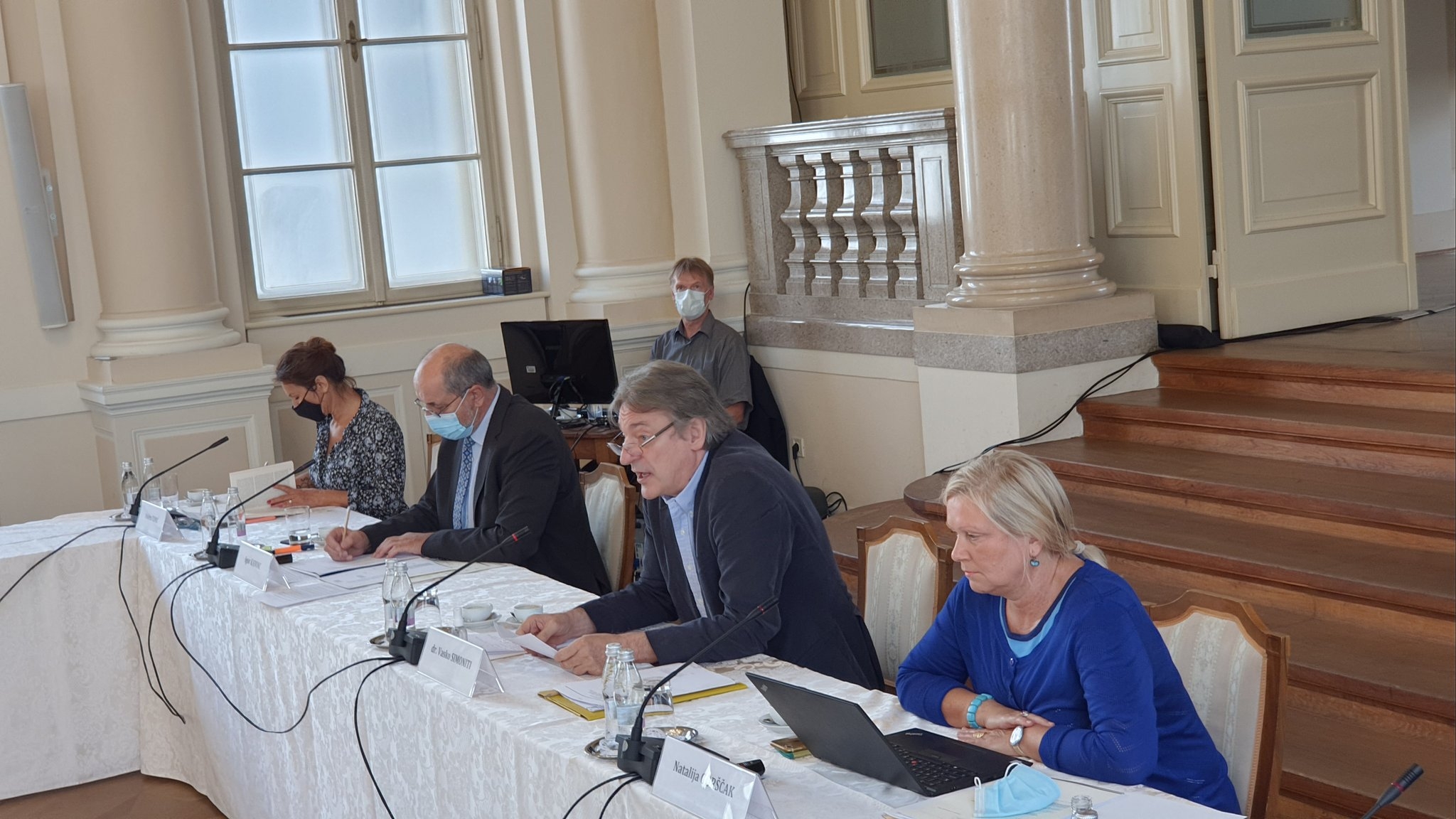
“The Ministry of Culture does not want to harm the public institution in any way with the proposed changes in the legislation. However, it does want RTV Slovenija to become a modern, plural, and financially rational media outlet, and at the same time, it wants to ensure that other media outlets also develop, which also strengthens trust in the media,” Minister of Culture Vasko Simoniti emphasized at a meeting with the President of the Republic Borut Pahor in the Presidential Palace, regarding the existing media legislation. Given the loss that RTV has generated, the Minister does not want to increase the mandatory RTV contribution but would rather see RTV become more competitive in the advertising market.
“Given our geographically small position and size, the responsibility of the public television should be growing, due to the increasingly influential reality of the digital world,” Minister of Culture Vasko Simoniti said at the meeting with the President of the Republic, regarding the future of RTV Slovenija. Simoniti pointed out that with the current legislation, nobody in our media space wants to take responsibility, which is especially important when it comes to false accusations and the dissemination of misleading information.
According to Minister Simoniti, RTV should maintain good communication of the best possible information and enable a constant dialogue at all levels and areas of public life. According to him, this depends on the management, the plurally formed program council, and, of course, the professionalism of the journalists. He then reminded everyone of the BBC’s example: “When the new director-general of the BBC was appointed a few weeks ago, he said that they had done a survey. He said: “Our main priority should be to renew our commitment to impartiality,” he added. According to Simoniti, the BBC is a great example to follow, as its reporting is objective and fair. As he pointed out, impartiality is our essential trait that can be achieved even in polarized times.
RTV should become a modern, plural, and financially rational media outlet
“The Ministry of Culture does not want to harm the public institution in any way with the proposed changes in the legislation. However, it does want RTV Slovenija to become a modern, plural, and financially rational media outlet, and at the same time, it wants to ensure that other media outlets also develop, which also strengthens trust in the media,” Simoniti once again emphasized that he does not want to harm RTV. However, he wants fundamental changes that are cost-effective and greater competition in the media market, which could lead to greater trust in the media. With the proposal to exclude transmitters and communications from the RTV Slovenija system, they want to achieve greater transparency and frugality in their operations, which is also what the BBC did with the restructuring.
Simoniti believes that RTV could achieve greater efficiency if it could compete in the advertising market more easily, as it could also receive additional funding there. “With an effective approach to the advertising market, RTV Slovenija should, at least in one part, face commercial providers,” he explained. “Believing that the only solution is the increase of the amount of the mandatory contribution, blaming everyone on the outside for the problems, not having an approved financial plan, not understanding the messages of the supervisory board regarding business and the like, I will not go into that because I am not a businessman,” the Minister said, adding that he believes that RTV should thus take matters into its own hands, approve the financial plan and optimize its operations, in accordance with the supervisory board.
The number of employees at RTV Slovenija is above average
The Minister then shared the information regarding the employees of RTV. In Slovenia, the public media outlet RTV Slovenija employs 1.1 persons per thousand people; in Austria, their public media outlet employs 0.41 persons per thousand, in the Czech Republic, the number is 0.44 per thousand, in Ireland 0.37, in Slovakia 0.16, and in Portugal 0.15 persons, which is comparable with other countries. In Slovenia, the number of employees is above the European average – the number is three times higher than the average. The restructuring of RTV and the change of media legislation is not a topic that has been thought of yesterday, as for the last few years, it has been emphasized that RTV’s work needs to be rationalized. As the Minister pointed out: “The new media legislation urges RTV Slovenija to organize and rationalize its work and business, which, after all, is not a new topic, but something that has been talked about for at least two decades.”
“Among the received comments regarding the proposed changes in media legislation, many called for the total abolition of the mandatory RTV contribution,” Simoniti added. No matter how the media legislation changes, there is also the possibility of the RTV contribution being abolished, which would bring a new reality for the media outlet. The public institution will sooner or later have to adapt and begin to operate in the new media reality, whatever it may be.
The abolition of the mandatory RTV contribution seems unfeasible to the Minister, but he believes that the payment of the RTV contribution will have to be regulated differently. “These proposals are unfeasible, perhaps even unconstitutional, but at the same time, we are convinced that the new solution for the distribution of RTV contributions is legally sustainable and will not only streamline but will bring even higher quality, greater professionalism, and pluralism of the media,” he further pointed out.
Sara Kovač